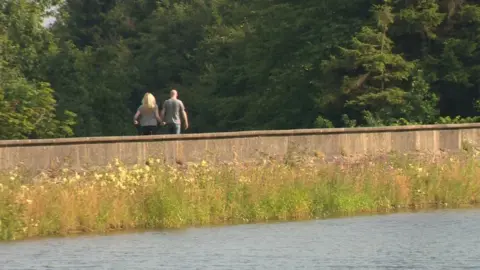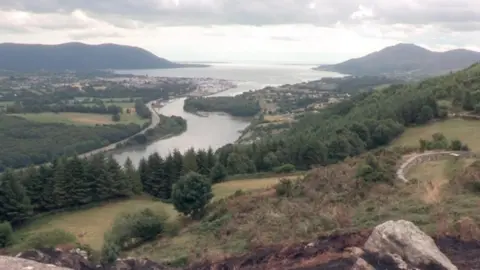Brexit: NI 'dangerously behind' on environment plans
 BBC
BBCNorthern Ireland is lagging "dangerously behind" other parts of the UK in planning how to protect the environment after Brexit.
That is the thrust of a submission by a coalition of environmental groups to a Westminster committee.
They say that the region needs to be covered by a UK-wide watchdog "with teeth" that can prevent abuses.
They claim it is starting from a "much lower baseline" on environmental governance than the rest of the UK.
There is also concern that after Brexit that gap could widen because Northern Ireland is the only part of the UK without an independent protection agency.
The points are made by Nature Matters NI, a coalition of the main environmental groups including the Royal Society for the Protection of Birds, Ulster Wildlife and the National Trust in evidence to a committee of MPs examining post-Brexit environmental protection.
'Need for commissioner'
Spokesman Daithí McKay said Northern Ireland joined Greece as the only part of the EU without an independent environment protection agency.

One was consulted on but did not materialise due to political opposition.
Mr McKay said England, Scotland and Wales were all making plans but the absence of a Stormont assembly meant Northern Ireland was falling behind.
"If we don't catch up soon there will be little to ensure that environmental laws are upheld and that our governments stick to targets," he added.
Mr McKay said Nature Matters NI wanted to see an environment commissioner based in Northern Ireland as part of the UK watchdog.
The government will copy EU environmental commitments into domestic law after Brexit.
But environmentalists are concerned that without the threat of fines from the European court, legislative divergence could lead to the weakening of levels of protection.
